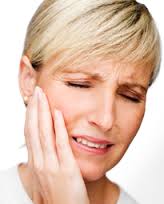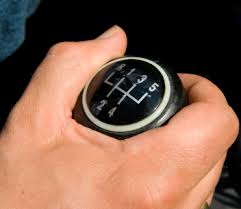-
Book Online Now - Acupuncture Solutions3900 Pebblecreek Ct #101
Plano, TX 75023972-612-4900 - 6501 Wesley St #A-1
Greenville, TX 75402903-213-3679 Learn more about…
#autumn #balance #behappy #fall #familytime #germs #healthlyliving #healthyskin #immunesystem #organs #psoriasis #seasons #sunscreen #thinkpositive acupressure acupuncture allergies anxiety coronavirus covid-19 depression diet digestion energy exercise headaches health heart herbs kidneys liver lungs meditation migraines nutrition pain pms qi sleep spring stress summer tcm Traditional Chinese Medicine winter
Stress
5 Tips to Help With TMJ
 Commonly known as TMJ, temporomandibular joint pain affects over 10 million Americans and can involve difficulty chewing, jaw muscle stiffness and painful popping or clicking, according to the National Institute of Dental and Craniofacial Research.
Commonly known as TMJ, temporomandibular joint pain affects over 10 million Americans and can involve difficulty chewing, jaw muscle stiffness and painful popping or clicking, according to the National Institute of Dental and Craniofacial Research.
Although for some people the pain of TMJ goes away on its own, others develop long-term problems and need treatment to help their pain.
Here are five tips you can practice at home to help your TMJ symptoms.
1. Jaw Exercises: Try opening your mouth as wide as you can without feeling pain, move your jaw to the right and hold for 10 seconds, do the same to the left and repeat five times.
Massage the muscles around your jaw hinge in a downward motion.
2. Relaxation: Stress and anxiety are very common inducers of TMJ. Some people tend to clench their jaw when feeling stressed or anxious, which results in TMJ symptoms.
Practice deep breathing. The best way to do this is to lie on your back, place your left hand on your stomach and right hand on your chest. Count to five to inhale, hold your inhale for two seconds, and exhale for five seconds.
Stretch your spine. Interlock your hands behind your head and bend forward with straight legs so that your head is reaching for the floor. Stay in this position for at least ten seconds accompanied with awareness to breathing. This practice can deeply stretch and relax your spinal chord and reduce TMJ pain.
3. Vitamins and Minerals: Deficiencies in calcium and magnesium are found to be common in people suffering from TMJ. The International Dental Association conducted a study on 50 TMJ sufferers who added calcium and magnesium supplements to their routine and found pain relief in 70 percent of the participants.
Magnesium rich food: Cashews, avocados, almonds soybeans, sesame butter, spinach, squash, sunflower seeds, rice, flaxseed.
Calcium rich food: milk, banana, almond, spinach, coconut, yogurt.
4. Herbal Remedies: Rhus Toxicodendron: This herb can help relieve jaw stiffness.
Kava Root: If your TMJ is due to stress or anxiety, Kava can be used to calm your nervous system and in turn, reduce TMJ symptoms caused by anxiety like a stiff jaw.
Magnesia Phosphorica: This homeopathic remedy can ease muscle stiffness and has an antispasmodic effect.
5. Acupuncture: Acupuncture has proven to be effective in treating TMJ in a number of ways. In Traditional Chinese Medicine, TMJ often represents an imbalance in the liver and gallbladder meridians which traverse the areas usually associated with TMJ pain. Acupuncture points focused on these areas can stimulate the healing process, and return the meridians and the body back to balance, improving your TMJ symptoms.
Sources:
http://umm.edu/health/medical/altmed/condition/temporomandibular-joint-dysfunction
http://home-cure.net/home-remedies-exercises-natural-cures-tmj-treatment/
http://www.healthline.com/health/anxiety/kava-cure
All Revved up and Can’t Slow Down?
 What do you think would happen if you kept your car in park and the engine revving at 65 miles per hour?
What do you think would happen if you kept your car in park and the engine revving at 65 miles per hour?
You guessed it—after a short time your car would break down. If you were lucky, a simple tune-up would fix the problem. If not, the engine might need to be replaced entirely.
Stress is a revving engine that, if left unchecked, can wear out the body and mind. Stress in our professional, personal, financial and social lives can lead to a variety of symptoms and signs of ill health.
Stress increases our body’s production of cortisol and adrenaline. These body chemicals help activate the “fight or flight” response, a normal reaction that is designed to prepare the body to flee danger or fight an attacker.
Unfortunately, many modern stressors are chronic and end up activating the “fight or flight” response for weeks, months, or years at a time. This long-term activation of the body’s stress-response system can wear down the body and mind, setting the stage for illness and disease.
The good news is that acupuncture and Chinese medicine can be extremely helpful in reducing symptoms and signs associated with stress in a number of ways:
1) A customized Chinese herbal prescription can help restore internal health and balance, thus “slowing the engine down.”
2) Safe, gentle and effective acupuncture treatments can help “turn off” the fight or flight response and can enable you to feel calmer and sleep more soundly.
3) Suggestions for a healthy lifestyle, including proper nutrition, meditation, rest and exercise, will enable you to maintain health over the long-term.
One of the unique attributes of Chinese medicine is its holistic approach to health and well-being. Instead of masking, or only addressing a few symptoms and signs related to stress, an acupuncturist cares for the whole person, body and mind.
Stop revving your engine! If you or someone you know is experiencing stress, feel free to give me a call. For thousands of years acupuncture has helped millions of people cool their engines before they burned out!